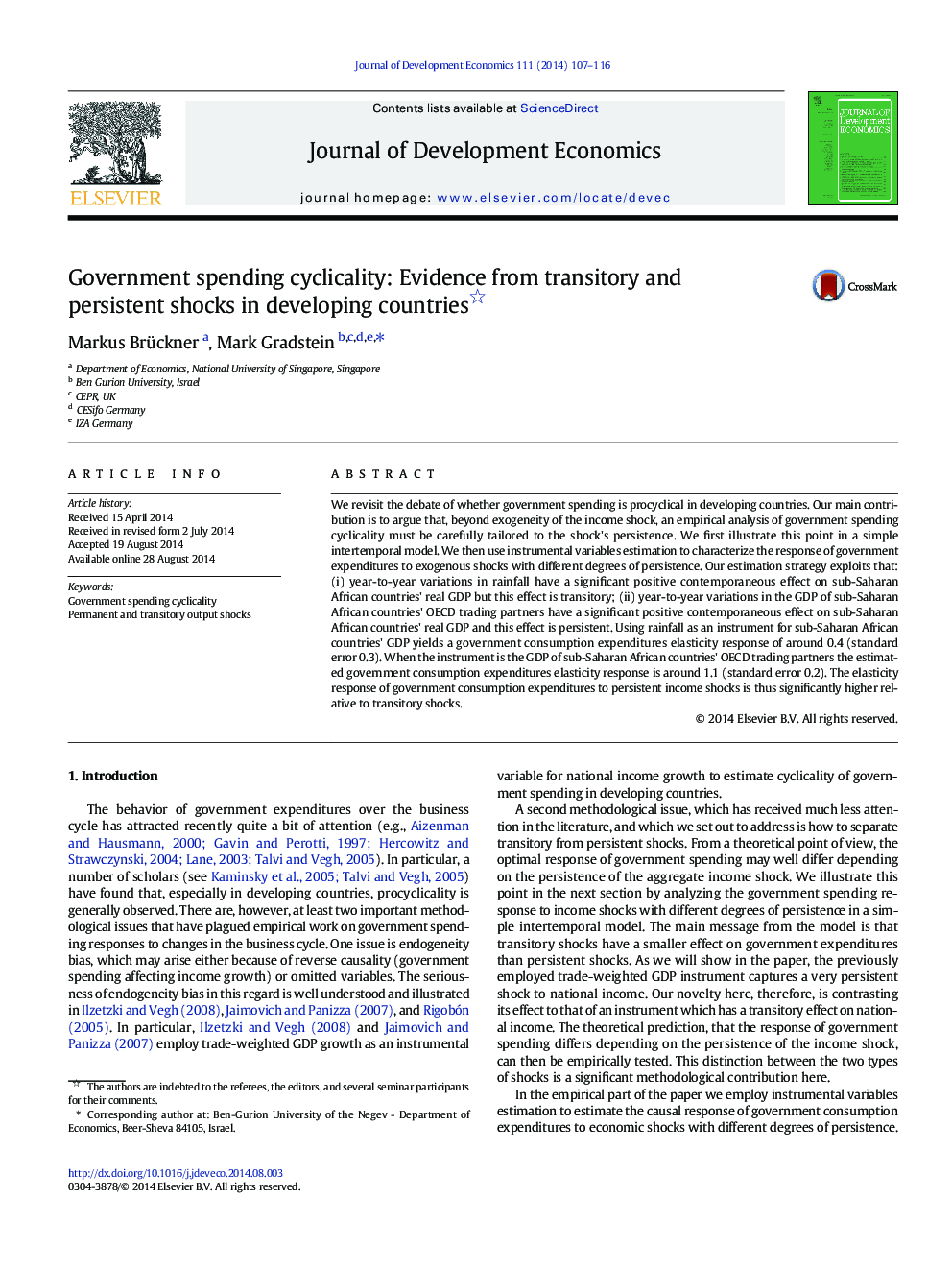| کد مقاله | کد نشریه | سال انتشار | مقاله انگلیسی | نسخه تمام متن |
|---|---|---|---|---|
| 5094468 | 1478500 | 2014 | 10 صفحه PDF | دانلود رایگان |
عنوان انگلیسی مقاله ISI
Government spending cyclicality: Evidence from transitory and persistent shocks in developing countries
ترجمه فارسی عنوان
سیکلالی بودن هزینه های دولتی: شواهدی از شوک های گذرا و مداوم در کشورهای در حال توسعه
دانلود مقاله + سفارش ترجمه
دانلود مقاله ISI انگلیسی
رایگان برای ایرانیان
کلمات کلیدی
سیکلیتی هزینه دولت، شوک های خروجی دائمی و گذرا،
موضوعات مرتبط
علوم انسانی و اجتماعی
اقتصاد، اقتصادسنجی و امور مالی
اقتصاد و اقتصادسنجی
چکیده انگلیسی
We revisit the debate of whether government spending is procyclical in developing countries. Our main contribution is to argue that, beyond exogeneity of the income shock, an empirical analysis of government spending cyclicality must be carefully tailored to the shock's persistence. We first illustrate this point in a simple intertemporal model. We then use instrumental variables estimation to characterize the response of government expenditures to exogenous shocks with different degrees of persistence. Our estimation strategy exploits that: (i) year-to-year variations in rainfall have a significant positive contemporaneous effect on sub-Saharan African countries' real GDP but this effect is transitory; (ii) year-to-year variations in the GDP of sub-Saharan African countries' OECD trading partners have a significant positive contemporaneous effect on sub-Saharan African countries' real GDP and this effect is persistent. Using rainfall as an instrument for sub-Saharan African countries' GDP yields a government consumption expenditures elasticity response of around 0.4 (standard error 0.3). When the instrument is the GDP of sub-Saharan African countries' OECD trading partners the estimated government consumption expenditures elasticity response is around 1.1 (standard error 0.2). The elasticity response of government consumption expenditures to persistent income shocks is thus significantly higher relative to transitory shocks.
ناشر
Database: Elsevier - ScienceDirect (ساینس دایرکت)
Journal: Journal of Development Economics - Volume 111, November 2014, Pages 107-116
Journal: Journal of Development Economics - Volume 111, November 2014, Pages 107-116
نویسندگان
Markus Brückner, Mark Gradstein,
